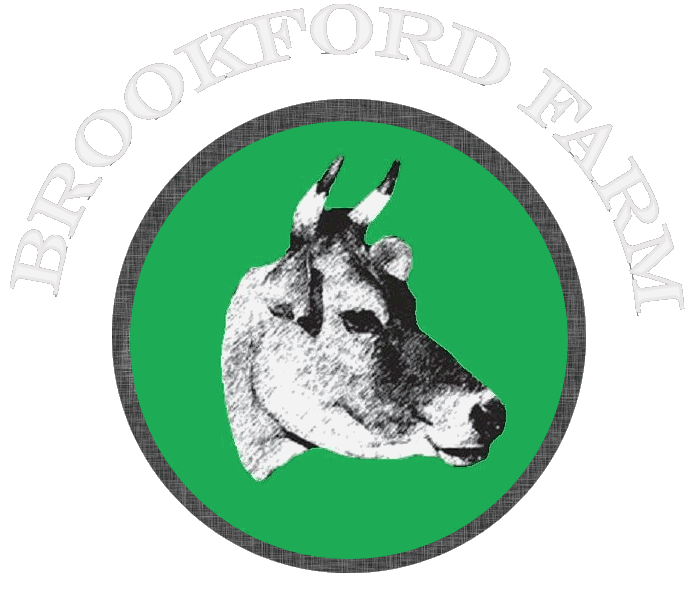It’s hard to believe the summer session is over. The beginning of each session feels like infinity and excitement - twenty whole weeks to savor and celebrate the season. In the past five months, we’ve weathered a severe drought, contentious politics, the start and end of summer, and most recently, that annual burst of colorful vibrancy on the trees, never ceasing to awe and humble.
I find it soothing to think about the coming session, twenty weeks that will carry us through the last of autumn, into the holidays, through the bitter cold of winter, and into March, where hope and life begin to stir deep within the earth. I’m already planning the soups, stews, gratins, and roasts that will keep us warm as we cozy into the season.
Winter is the time when seasonal eating becomes more challenging for lots of New Englanders. We’ve become so accustomed to continuous supply of lettuce, tomatoes, peppers, and watermelon at the grocery store, it’s hard to believe that one hundred years ago, seasonal eating was what kept people alive. Embracing seasonal eating during the cold months can take practice and a certain level of unlearning, but it’s a journey that is so well worth it. Waiting to enjoy seasonal treasures while they’re naturally available means that your taste buds get to reawaken each time the season changes, welcoming back familiar tastes while discovering nuances that can get missed with repetitive exposure.
Whatever it is that draws one to eat seasonally, I always find it rewarding to explore the benefits that extend into our larger world. I recently happened upon this list, compiled by Vern Grubinger of The University of Vermont Extension, and thought it was worth sharing.
Ten Reasons to Buy Local Food
by Vern Grubinger
Vegetable and Berry Specialist
University of Vermont Extension
Adapted from 'Growing For Market' newsletter article.
Vermont has a wide variety of farms. While known for our dairy production, there also many farms that raise fruits and vegetables, flowers and herbs, and animal products of all kinds. Our farmers are dedicated to stewardship and committed to quality. And while they love what they do, they aren't doing it for entertainment. They need to make a living. Consumers that value fresh food and a working landscape should support local farmers by buying their products. Here are ten reasons why.
1) Locally grown food tastes and looks better. The crops are picked at their peak, and farmstead products like cheeses and are hand-crafted for best flavor. Livestock products are processed in nearby facilities and typically the farmer has direct relationship with processors, overseeing quality - unlike animals processed in large industrial facilities.
2) Local food is better for you. The shorter the time between the farm and your table, the less likely it is that nutrients will be lost from fresh food. Food imported from far away is older and has traveled on trucks or planes, and sat in warehouses before it gets to you.
3) Local food preserves genetic diversity. In the modern agricultural system, plant varieties are chosen for their ability to ripen uniformly, withstand harvesting, survive packing and last a long time on the shelf, so there is limited genetic diversity in large-scale production. Smaller local farms, in contrast, often grow many different varieties of crops to provide a long harvest season, an array of colors, and the best flavors. Livestock diversity is also higher where there are many small farms rather than few large farms.
4) Local food is safe. There's a unique kind of assurance that comes from looking a farmer in the eye at farmers' market or driving by the fields where your food comes from. Local farmers aren't anonymous and they take their responsibility to the consumer seriously.
5) Local food supports local families. The wholesale prices that farmers get for their products are low, often near the cost of production. Local farmers who sell direct to consumers cut out the middleman and get full retail price for their food - which helps farm families stay on the land.
6) Local food builds community. When you buy direct from a farmer, you're engaging in a time-honored connection between eater and grower. Knowing farmers gives you insight into the seasons, the land, and your food. In many cases, it gives you access to a place where your children and grandchildren can go to learn about nature and agriculture.
7) Local food preserves open space. When farmers get paid more for their products by marketing locally, they're less likely to sell farmland for development. When you buy locally grown food, you're doing something proactive to preserve our working landscape. That landscape is an essential ingredient to other economic activity in the state, such as tourism and recreation.
8) Local food keeps taxes down. According to several studies by the American Farmland Trust, farms contribute more in taxes than they require in services, whereas most development contributes less in taxes than the cost of required services. Cows don’t go to school, tomatoes don’t dial 911.
9) Local food benefits the environment and wildlife. Well-managed farms provide ecosystem services: they conserve fertile soil, protect water sources, and sequester carbon from the atmosphere. The farm environment is a patchwork of fields, meadows, woods, ponds and buildings that provide habitat for wildlife in our communities.
10) Local food is an investment in the future. By supporting local farmers today, you are helping to ensure that there will be farms in your community tomorrow. That is a matter of importance for food security, especially in light of an uncertain energy future and our current reliance on fossil fuels to produce, package, distribute and store food.
